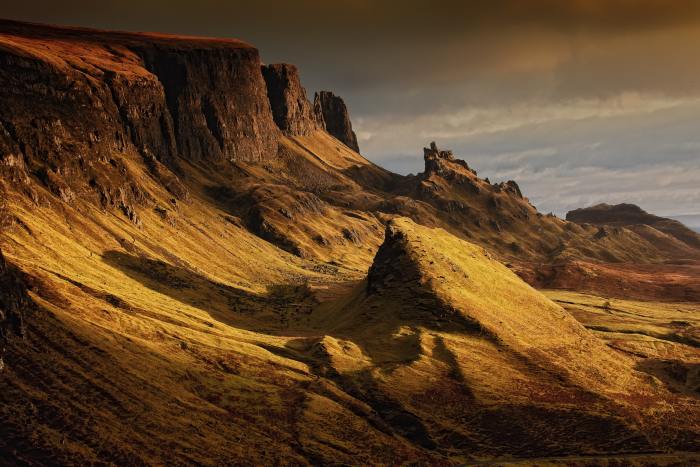
I am not sure what comes to your mind when you read the word “wilderness,” but most of us will not put it on our “bucket list” of places we want to be certain to visit in our lifetime. It won’t likely show up in the listing of top vacation spots on most travel websites either.
A dictionary definition of “wilderness” uses these words: “an uncultivated, uninhabited, and inhospitable region; a neglected or abandoned area of a garden or town.”
That doesn’t sound very appealing. Many of us have not visited a region known as “wilderness” for those reasons and more, but many of us have described seasons of our lives where it felt as if we were in a “wilderness.”

Such seasons can come from a crisis of some variety that plunges us into a sense of isolation, hopelessness, and emptiness. Some of those seasons come when we have turned our backs on the Lord through commission or omission. Depression and anxiety can feel like a wilderness as well.
If we can avoid anything remotely connected to “wilderness,” most of us will do us unless we are one of those “off the beaten path” types eager for such vacation adventures offered.
Reading the Old Testament gives us a number of very vivid pictures of the wilderness. There is the story of Hagar after Sarah forces her to leave with Ishmael. Moses initially flees there after killing an Egyptian and of course the children of Israel’s route to the Promised Land goes right through the wilderness (actually a series of wilderness places – Mt. Sinai, Paran, Moab), but there are others as well such as when David flees there when Saul is out to take his life.
Jenny Phillips in an article for the American Bible Society offers an insightful view of wilderness in the Bible:
“The wilderness of the Bible is a liminal space—an in-between place where ordinary life is suspended, identity shifts, and new possibilities emerge. Through the experiences of the Israelites in exile, we learn that while the Biblical wilderness is a place of danger, temptation and chaos, it is also a place for solitude, nourishment, and revelation from God. These themes emerge again in Jesus’ journey into the wilderness, tying his identity to that of his Hebrew ancestors.”
One of my favorite descriptions of Jesus being led into the wilderness or desert is found in Ken Gire’s exceptional book, Moments with the Savior: A Devotional Life of Christ:
“It stretches before him like an endless wasteland, frayed with gullies, littered with splintered rock and sun-bleached bones. Stoop-shouldered hills are hunched all around him. At his feet, impoverished plants reach skyward, like beggars desperate for alms. But the eyes of heaven are unsympathetic. They offer no tears. Only the compensatory promise of night.”
That physical place might not be in your experience, but the feeling of such a place may be one you are acquainted with or perhaps know now.

It seems impossible for us to consider other aspects of these very stories when we are in the midst of such a time. We forget that God provided for Hagar and Moses in their first wilderness experiences with Him.
We forget when the children of Israel were out there in the wilderness complaining about the food, water, and accommodations that God was in their midst.
The Tabernacle was located in the very center of their encampment with the Levites encircling this holy place.
We forget that God sheltered David and his mighty men in the caves of the wilderness.
Our conflict with the wilderness is evident in all this. None of us wants to be there and yet there is testimony about the good that is accomplished in us when we are there and as a result of that season.
We grapple with the evidence that God led Jesus into the wilderness. He led the children of Israel into the wilderness. On our worst days we can be tempted to question how a loving God could do that.
One thing is also clear: In the wilderness God ultimately gets our attention.
Everything and everyone else has been stripped away so all that dulls our eyes to see Him cannot distract us or muffle our ears to hear Him.
Jenny Phillips notes in her article on the wilderness that being there has a number of functions:
“It serves as a place of barrenness and hunger, a source of nourishment from God, a location for God’s testing and revelation, and a context for the transformation for God’s people.”
The conflict within us about the wilderness reaches a peak when we face the question central to the experience: “Do I trust you, Lord?”
Our response will determine the outcome.
Our choice transforms our character.

Pam, this post brings such good insight into our wilderness experiences. It is there that we come to experience God in the most precious of ways. It is there that He brings growth and causes life to burst forth in beauty once again. May we always choose to trust Him for He will always lead us rightly.
So thought provoking. Thank you.
“In the wilderness God ultimately gets our attention.” Yes! This is so true! Great perspective here! Thanks for sharing your thoughts!
Thank you for your encouraging words 😊
It is a choice to move toward God where ever we are, including the wilderness. He call us to “Come to me all who are weary…” I love the desert description. Very vivid!
Thanks so much, Lynn💕